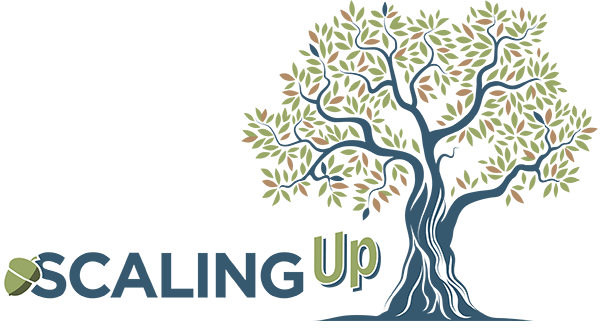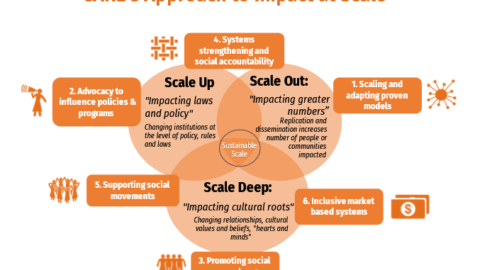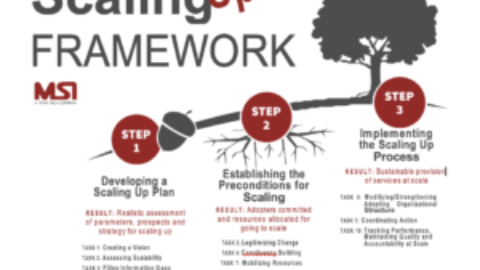By Alan Hurwitz (ahalink@comcast.net)
The success of many scaling processes may depend in large part on the effectiveness of a group of interdependent stakeholders working as a truly collaborative system.
For some years, I have been exploring the more general phenomenon of individual organizations working together for limited, though often very important goals, as a part of my organizational development consulting activities. These goals may be political, financial, often environmental, to suggest a few possible areas. I call these organizational groupings “clusters”, similar to what some in the scaling community call “coalitions”. In studying the “clustering” dynamic of totally separate organizations working together, the following nine factors have emerged as critical for success:
- A defined vehicle for joint planning;
- Mechanism(s) for ongoing communication;
- Accepted procedures or decision-making;
- A shared base of information;
- Common paradigms for understanding key issues;
- Effective mechanisms for implementation;
- Accepted ground-rules for addressing differences;
- Clear limits and boundaries;
- Clear and valued shared or overlapping goals or interests
Some of these factors are relevant to collaborative situations in general, while others are more specific to “Clusters”. Those have mainly to do with the fact that groups of separate organizations usually don’t share common structures or procedures.
Anyone interested in a more complete discussion of “Clusters” can refer to my article of several years ago in Business Horizons, “Organizational Structures for the New World Order”.
An example of a scaling collaboration challenge arose in the recent CoP plenary session on Adaptive Management when we were shown a list of possible barriers to the effective use of Adaptive Management and asked to prioritize them in terms of their potential to limit the scope for flexible implementation and strategy adaptation. On reflection, I was struck by the fact that successful response to these challenges by any individual organization demanded some type of flexibility from one or more of the others involved in the scaling process, often from a different sector. Similarly, flexibility on the part of any organization could usually be made more feasible by some kind of flexibility on the part of one of the others.
For example, flexibility (adaptation) for implementors is often limited by policies, or by a narrow single purpose goal or priority, of donors. Opportunities for flexibility are more likely when the funding organization trusts project implementors, and vice versa. Positive attribution for sponsoring organizations may be limited or challenged by a need to involve additional collaborators in the process. These potential limits to adaptation demonstrate opportunities for interdependence. I suspect those involved in these activities will think of many more examples.
The necessary trade-offs occur most easily when the various actors have time to work them out, and also to develop necessary trust as a basis for initial and ongoing agreements.
Negotiating flexibilities is a common agenda for many types of collaboration; the organization design folks call it “mutual adjustment”. The need to do this kind of negotiating is a principal criterion for organizing managers or staff into effective teams in many organizations.
As a result of this reflection, I’d like to propose another limitation to the initial list from that session, and more positively a potentially important suggestion, for effective Adaptive Management, and perhaps scaling in general. If the key organizations involved in any scaling activity truly embrace the importance of adaptive management, they should prioritize trust building and mutual adjustment through joint planning among the organizations in the relevant “cluster”, planning that includes candid discussion about each organization’s aspirations, capabilities, and constraints, and reinforces the group’s commitment to the scaling agenda.



